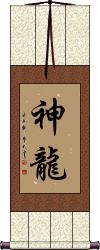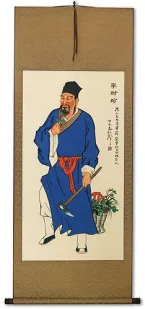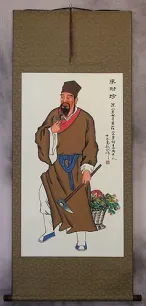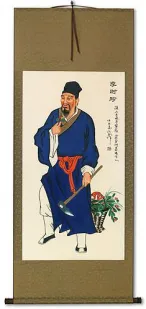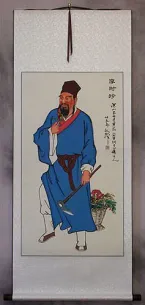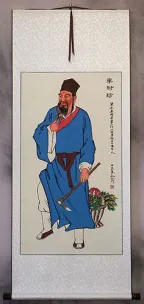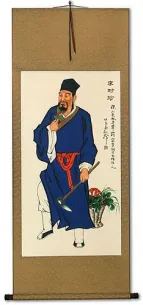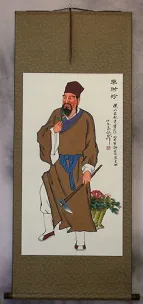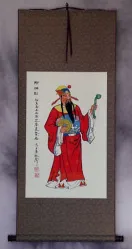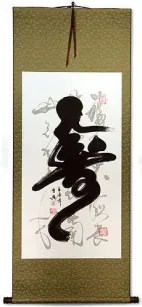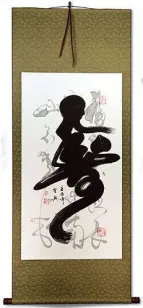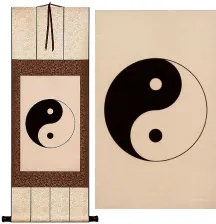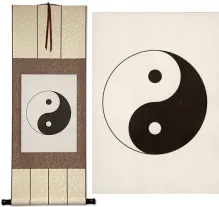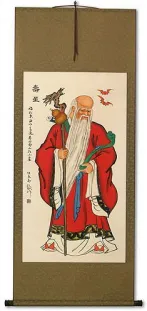Many custom options...
And formats...

Not what you want?
Try other similar-meaning words, fewer words, or just one word.
Feel free to email me with your request. If it's easy, I'll translate it for free and add it to this database of calligraphy for you.
Shen Long in Chinese / Japanese...
Buy a Shen Long calligraphy wall scroll here!
Shen Long
神龍 or Shen Long literally means “god dragon” or “divine dragon.”
神龍 is a spiritual dragon from Chinese mythology that controls wind, storms, clouds, and rain. Historically, farmers in China avoid offending this dragon, as it could result in a drought or flooding of their fields.
Shen Long has blue/azure scales and appears on the beautiful robes of some Chinese emperors.
Sometimes romanized as Shen Lung and sometimes written as 神竜 in Japan with the pronunciation of Shinryū or Shenron. It can also be a given name in Japan.
This in-stock artwork might be what you are looking for, and ships right away...
Shen Nong
Divine Farmer
Oriental Wall Scroll
Discounted Blemished
Gallery Price: $58.00
Your Price: $32.00
Gallery Price: $200.00
Your Price: $79.88
Decorative Shen Nong
Divine Farmer Art Wall Scroll
Discounted Blemished
Gallery Price: $63.00
Your Price: $35.00
God Of Money & Prosperity
Cai Shen
Chinese Scroll
Discounted Blemished
Gallery Price: $120.00
Your Price: $45.00
Gallery Price: $31.00
Your Price: $16.88
Longevity / Long Life Unique Calligraphy Scroll
Discounted Blemished
Gallery Price: $47.00
Your Price: $26.00
Decorative Longevity / Long Life Calligraphy Wall Scroll
Discounted Blemished
Gallery Price: $31.00
Your Price: $17.00
Gallery Price: $61.00
Your Price: $33.88
Not the results for shen long that you were looking for?
Below are some entries from our dictionary that may match your shen long search...
| Characters If shown, 2nd row is Simp. Chinese |
Pronunciation Romanization |
Simple Dictionary Definition |
神龍 see styles |
shenron シェンロン |
More info & calligraphy: Shen Long |
神竜 see styles |
shenron シェンロン |
(myth) Shen Long (spiritual dragon in Chinese mythology); Shen-lung |
Variations: |
shinryuu; jinryuu; shenron / shinryu; jinryu; shenron しんりゅう; じんりゅう; シェンロン |
(myth) Shen Long (spiritual dragon in Chinese mythology); Shen-lung |
The following table may be helpful for those studying Chinese or Japanese...
| Title | Characters | Romaji (Romanized Japanese) | Various forms of Romanized Chinese | |
| Shen Long | 神龍 | shenron / shinryuu shenron / shinryu | shén lóng shen2 long2 shen long shenlong | shen lung shenlung |
Successful Chinese Character and Japanese Kanji calligraphy searches within the last few hours...
